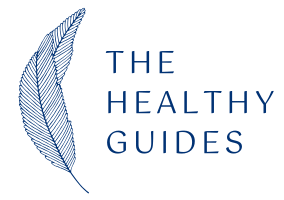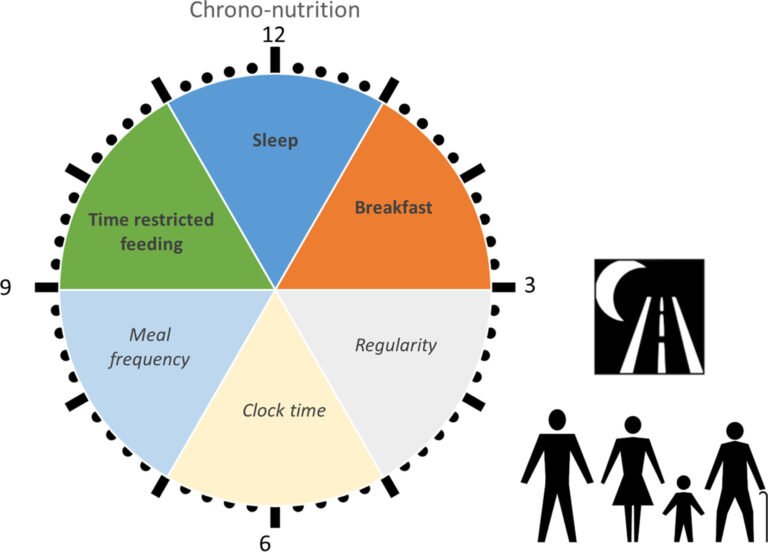How Many Hours of Sleep Do You Really Need by Age?
Sleep: it’s the free medicine most of us forget to take seriously. Whether you’re a teenager pulling late-night study sessions, a new parent living on catnaps, or a retiree who finds themselves waking up before sunrise, the big question remains: how many hours of sleep do you really need by age?
Spoiler alert: the answer isn’t “one size fits all.” Sleep needs evolve as we grow—from the long snoozes of newborns to the steady rhythms of adulthood, and eventually to lighter, shorter sleep patterns in older age.
In this guide, we’ll break down sleep recommendations for every age group, explore why our sleep needs shift, and share science-backed tips to actually get the rest your body craves.
1. Why Sleep Matters at Every Age
Sleep isn’t just about shutting your eyes and recharging batteries—it’s a complex biological process that:
- Strengthens memory and learning
- Repairs muscles and tissues
- Balances hormones and metabolism
- Supports mood and mental health
- Boosts immunity and longevity
Skipping proper sleep regularly is linked to:
- Higher risk of obesity, diabetes, and heart disease
- Poor concentration and memory
- Weaker immune defenses
- Faster aging (yes, beauty sleep is real!)
2. Sleep Needs Across the Lifespan
The National Sleep Foundation (NSF) and other major sleep organizations have carefully studied age-related sleep requirements. Here’s the breakdown:
| Age Group | Recommended Sleep (per night) | May Be Appropriate |
|---|---|---|
| Newborns (0–3 months) | 14–17 hours | 11–19 hours |
| Infants (4–11 months) | 12–15 hours | 10–18 hours |
| Toddlers (1–2 years) | 11–14 hours | 9–16 hours |
| Preschoolers (3–5 years) | 10–13 hours | 8–14 hours |
| School-age (6–13 years) | 9–11 hours | 7–12 hours |
| Teenagers (14–17 years) | 8–10 hours | 7–11 hours |
| Young adults (18–25 years) | 7–9 hours | 6–11 hours |
| Adults (26–64 years) | 7–9 hours | 6–10 hours |
| Older adults (65+ years) | 7–8 hours | 5–9 hours |
3. Deep Dive: How Much Sleep by Age
🍼 Newborns (0–3 Months): 14–17 Hours
- Sleep happens in chunks, day and night.
- Crucial for brain growth, sensory development, and physical repair.
- Parents: brace yourself for irregular patterns—newborns don’t know day from night!
👶 Infants (4–11 Months): 12–15 Hours
- Nap patterns start forming (2–3 naps/day).
- Sleep consistency helps with emotional regulation and learning.
- Sleep training can begin around 4–6 months for smoother nights.
🚼 Toddlers (1–2 Years): 11–14 Hours
- One long nap + overnight sleep.
- Helps regulate mood and fuels high-energy growth spurts.
- Beware: skipping naps often leads to meltdowns.
🎨 Preschoolers (3–5 Years): 10–13 Hours
- Still need naps, but less frequent.
- Dreams become more vivid—nightmares or night terrors may appear.
- Quality sleep supports creativity, learning, and immune strength.
📚 School-Age Kids (6–13 Years): 9–11 Hours
- Stable sleep schedule critical for school performance.
- Too little sleep = poor concentration, behavior issues, weakened immunity.
- Limit screen time before bed to support melatonin production.
😴 Teenagers (14–17 Years): 8–10 Hours
- Biological clocks shift (“night owl” tendency).
- But school schedules often cut into needed rest.
- Chronic sleep deprivation in teens is linked to anxiety, depression, and academic decline.
🎓 Young Adults (18–25 Years): 7–9 Hours
- Lifestyle often disrupts sleep (late-night study, parties, work).
- Sleep debt here can lead to burnout and weakened immune defenses.
- Good habits early prevent chronic issues later.
🧑 Adults (26–64 Years): 7–9 Hours
- Ideal range for health, productivity, and longevity.
- Sleep deprivation linked to higher risk of obesity, heart disease, diabetes, and cognitive decline.
- Prioritizing consistent bedtime is key to reducing “social jet lag.”
👵 Older Adults (65+ Years): 7–8 Hours
- Sleep gets lighter; REM stages may shorten.
- Common issues: insomnia, waking up earlier, sleep apnea.
- Naps can help, but long daytime naps may disrupt nighttime rest.
4. Why Sleep Needs Change with Age
- Brain development: Babies and kids need more sleep to wire new brain connections.
- Hormones: Teenagers experience melatonin shifts that push bedtimes later.
- Metabolism & health: Adults need less total sleep but higher quality to repair cells.
- Aging: Seniors often experience lighter sleep due to circadian rhythm shifts and health conditions.
5. The Quality vs Quantity Debate
It’s not just about hours—it’s about sleep quality. Signs you’re sleeping well:
- Fall asleep within 20 minutes.
- Sleep through the night (with minimal waking).
- Wake up refreshed without constant fatigue.
Poor sleep quality = increased risk of chronic illness even if you “get enough” hours.
6. Factors That Affect Your Sleep Needs
- Lifestyle: Exercise, work shifts, diet, stress.
- Medical conditions: Sleep apnea, thyroid issues, chronic pain.
- Mental health: Anxiety, depression, PTSD.
- Environment: Noise, light, room temperature.
7. Tips to Improve Sleep at Any Age
- Stick to a consistent bedtime/wake-up schedule.
- Limit caffeine and alcohol, especially late in the day.
- Create a bedtime routine (reading, warm shower, journaling).
- Use blackout curtains and keep the room cool.
- Avoid screens at least 1 hour before bed (blue light suppresses melatonin).
- Try relaxation techniques: meditation, breathing exercises, or gentle stretching.
8. Sleep Myths Busted
- “I’ll catch up on sleep over the weekend.”
Nope—sleep debt doesn’t fully reset that way. - “Older adults need less sleep.”
Not true—they still need 7–8 hours, but sleep patterns change. - “Napping is lazy.”
Wrong! Short naps (20–30 min) improve alertness and performance.
9. Sleep Recommendations by Age Recap
- Babies: long stretches to fuel growth.
- Kids/teens: still more than adults, crucial for learning.
- Adults: 7–9 hours for health and productivity.
- Seniors: slightly less, but quality matters more than ever.
10. The Bottom Line
So, how many hours of sleep do you really need by age?
- Babies and children: 10–17 hours depending on age.
- Teens: 8–10 hours.
- Adults: 7–9 hours.
- Seniors: 7–8 hours.
But remember—it’s not just the numbers. Consistency and quality make the real difference.
If you’re waking up tired every day, struggling with focus, or feeling moody, it’s a sign your sleep needs aren’t being met—regardless of your age group.
Prioritize rest as much as diet and exercise. Because at every age, sleep is the foundation of a healthier, happier life.
Conclusion:
Sleep isn’t a luxury—it’s a biological necessity, as vital as food and water. And while the number of hours we need changes as we grow, the importance of quality rest never fades. From newborns who spend most of their days in dreamland to adults who juggle busy lives on 7–9 hours, sleep shapes our mood, memory, immunity, and even lifespan.
So, how many hours of sleep do you really need by age? The answer is simple: enough to wake feeling refreshed, focused, and ready for the day—whether that’s 8 hours as a teen or 7 as a senior.
If you’ve been skimping on sleep, let this be your reminder: good rest is the foundation of good health. Prioritize it. Protect it. And most importantly—enjoy it. Because the healthier, happier, and more energized version of you is just a good night’s sleep away.
❓ Frequently Asked Questions (FAQs)
1. Is 5 hours of sleep enough?
No, for most people 5 hours isn’t enough. Adults need at least 7 hours of quality sleep. Chronic short sleep can harm brain function, mood, and long-term health.
2. Do older adults need less sleep?
Not really. Seniors still need around 7–8 hours per night. The difference is that sleep becomes lighter and more fragmented with age.
3. How many hours should a teenager sleep?
Teens need 8–10 hours per night. Unfortunately, school schedules often cut into this, leading to sleep deprivation.
4. Is 6 hours of sleep okay for adults?
While some people function on 6 hours, research shows 7–9 hours is the healthiest range for adults. Consistently sleeping 6 hours can increase health risks.
5. How do I know if I’m getting enough sleep?
If you wake refreshed, don’t rely on caffeine to stay alert, and can focus throughout the day, you’re likely getting enough. Constant fatigue means you need more or better-quality sleep.
6. Can naps replace lost nighttime sleep?
Short naps (20–30 minutes) can boost energy but don’t replace the full benefits of consistent overnight sleep. Long naps may also disrupt nighttime rest.
7. Does everyone need the same amount of sleep?
No. Genetics, lifestyle, and health conditions affect sleep needs. The official ranges are guidelines—listen to your body as the final judge.
8. Is sleeping too much bad for you?
Yes, regularly sleeping more than 10–11 hours (without a medical reason) can signal underlying issues like depression, chronic illness, or sleep disorders.
High protein breakfasts aren’t just good for your body—they also stabilize mood and energy, reducing anxiety crashes later in the day. Learn more in our Mental Health section.
For more tips and support, visit our Facebook page.







